Time Out New York
Art Observed
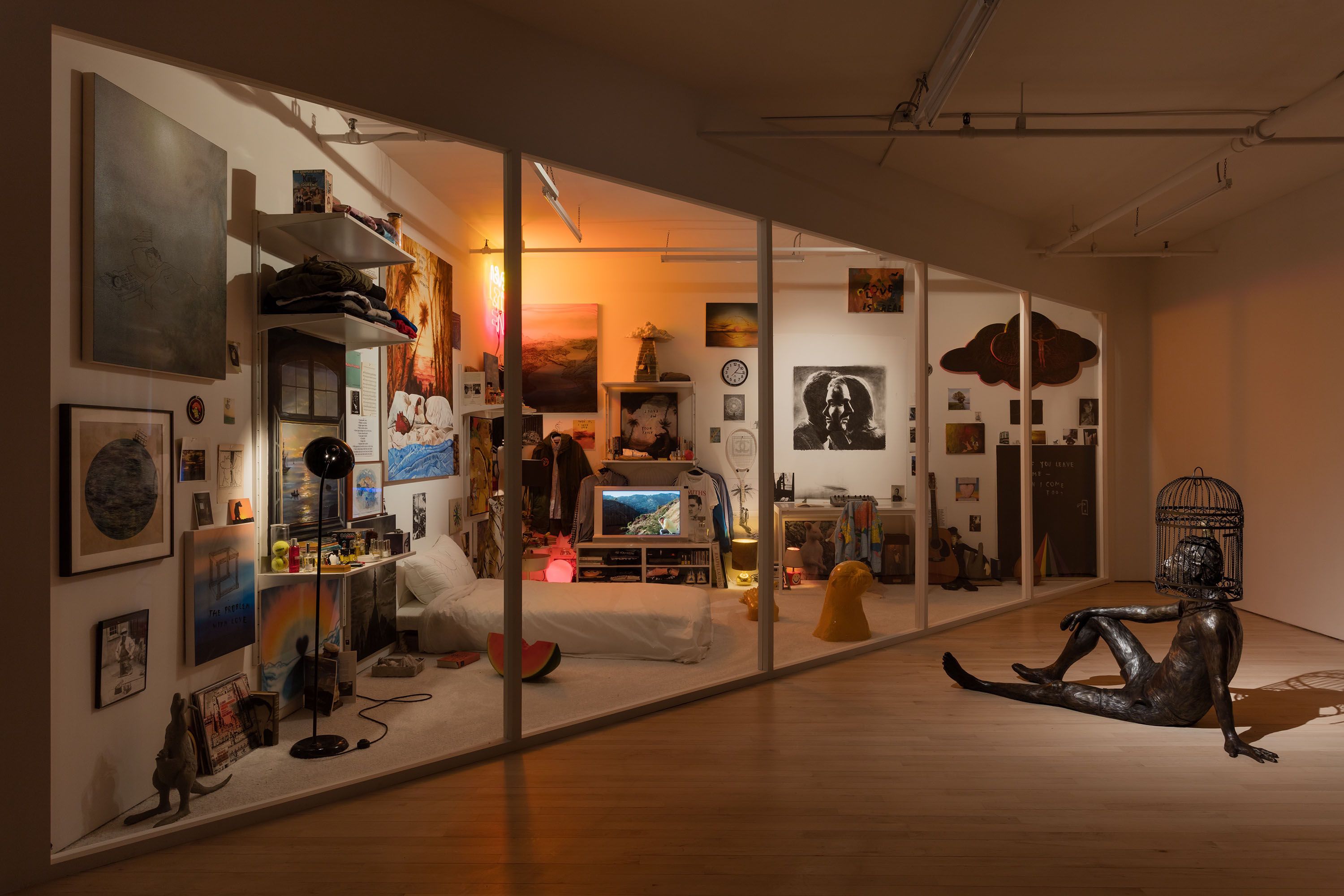
JTT is please to present All Your Fears Trapped Inside a solo exhibition by Los Angeles-based artist Friedrich Kunath.
Nestled into a corner of the gallery is a focused installation—sentimental objects collected by Kunath over the past twenty years arranged neatly into a small room that also includes a simple bed, shelving, a writing desk and a television. The shelves are lined with perfumes, Rod McKuen books, a small statuette of a boy that reads “I wish I could say what I feel”, car keys, tennis balls, photographs, and Hildegard Knef albums. Pinned to the wall are pages torn from magazines, sheet music to “I Just Don’t Know What to Do with Myself”, and various paintings made by Kunath since 2003. Above the bed hangs a painting by Kunath that reads “Never Liked You But Still Nostalgic” the sentiment of which is echoed in a neon just to the right of it that reads “Never Let It End”. Almost hidden beside the pillow of the bed is a book that reads “Alcoholics Anonymous” along the spine. On the desk rests an old photograph of a building in Cologne. On the ground oor of this building is a honey store where Joseph Beuys once bought all of the honey for his installation “Honeypump at the Workplace”, shown at Documenta VI in 1977. In the top left corner of the photograph perches a small window—Kunath’s rst studio, where he worked from 1999 through 2003.
On the television plays a silent compilation of nearly all of the video work that Kunath has ever made. Some of these earlier videos feature the young artist performing small gestures in public spaces confusing bystanders. A hidden camera documents their reactions and ultimately their indifference to Kunath’s passionate interludes. In one, he stands on a train platform greeting arriving strangers as if they were loved ones with open arms and a rose. The strangers rebuff him and he performs a short expression of sorrow until he tries again.
On the oor of the gallery sitting just outside of this small room a bronze statue of a half naked man reclines on the oor, gazing towards it. His head is encased in a bird cage, the door to which is open. On the man’s head sits a bird, indifferent to its freedom. In his mid-forties, Kunath is too young for a retrospective, and yet he has build one for himself here. It isn’t the slow progression of his career through bodies of work in chronological order, but it is a tender exposure of where he once lived, what he once wore, that he has loved, what he has read, what he has believed and the notion that who he has been is not who he still is. Kunath approaches self-expression with the type of love and aching pain usually reserved for a musician, or a Pierrot.
In a recent essay on Kunath’s work, the historian James Elkins contextualizes his practice within the era of New Romanticism, a movement that he argues began in the late 90s and continues to the present. It can be characterized by “wearing its heart on its sleeve, being confessional, wildly sincere, sentimental, passionate.” Elkins traces in this essay the importance of “feeling, emotion, affect, beauty and sublimity” as a reaction against the austerity of Modernism and criticality of Postmodernism. Which isn’t to say that Kunath doesn’t engage in intellectual or theoretical practices, his work simply relies on the power of emotions such as fear, love, rejection and failure as tools to better understand concepts of individualism, capitalism, consciousness, authenticity, and the sublime. It is with equal parts sentiment and melancholy that All Your Fears Trapped Inside suggests the idea that a person is the sum of their possessions.
Kunath was born in East Germany in 1974 and moved to Los Angeles in 2008 where he currently lives and works.
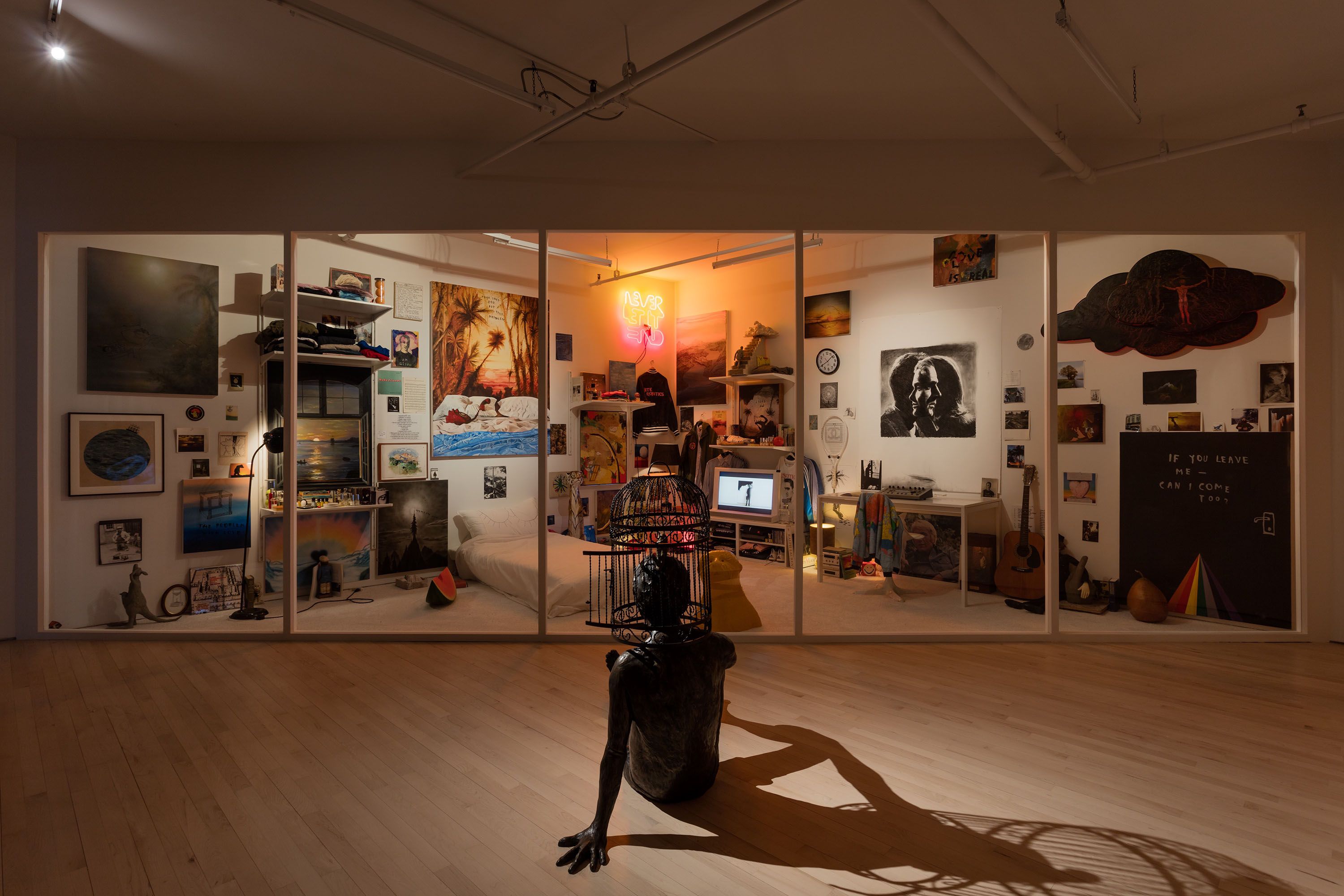
mixed media
dimensions variable
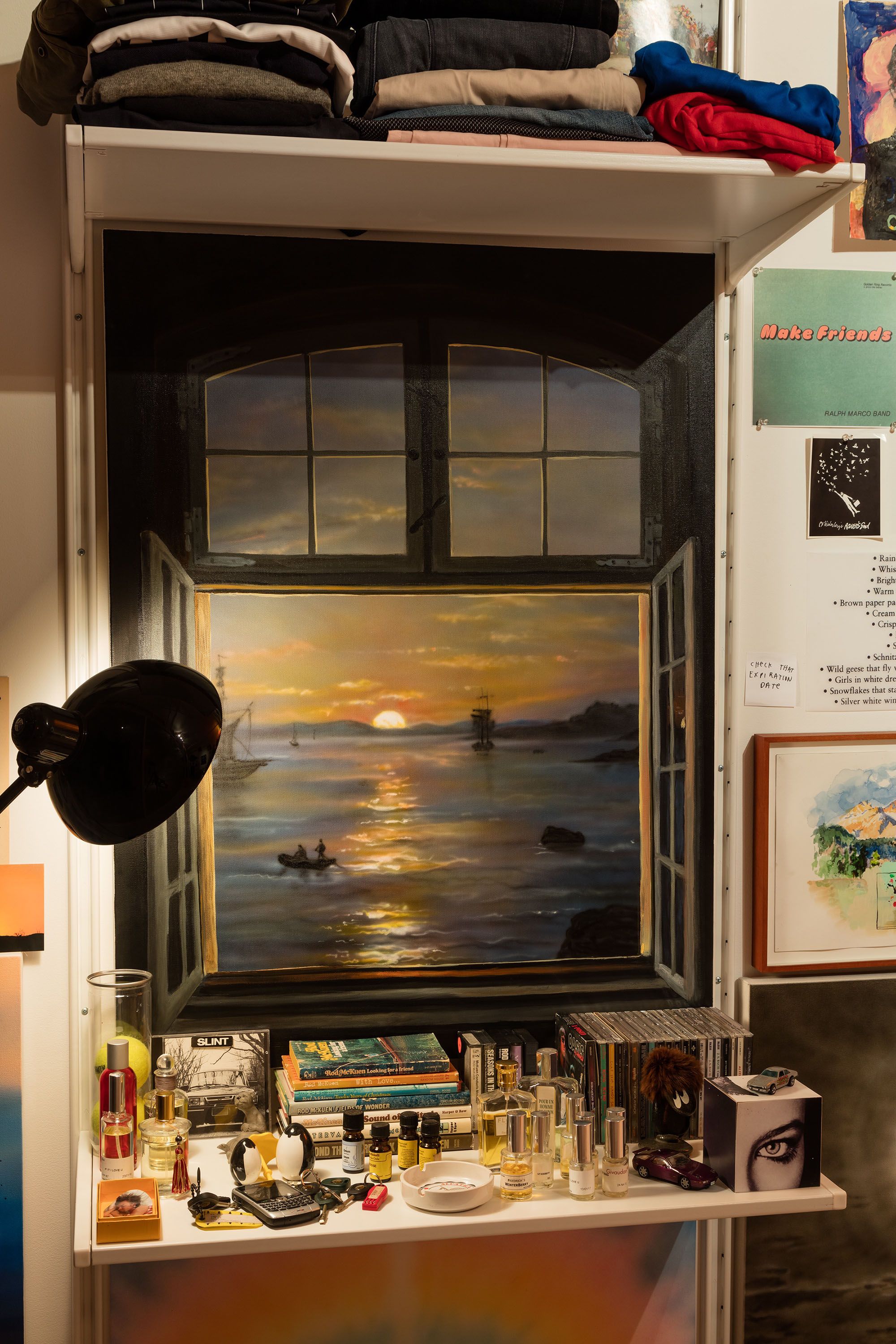
mixed media
dimensions variable
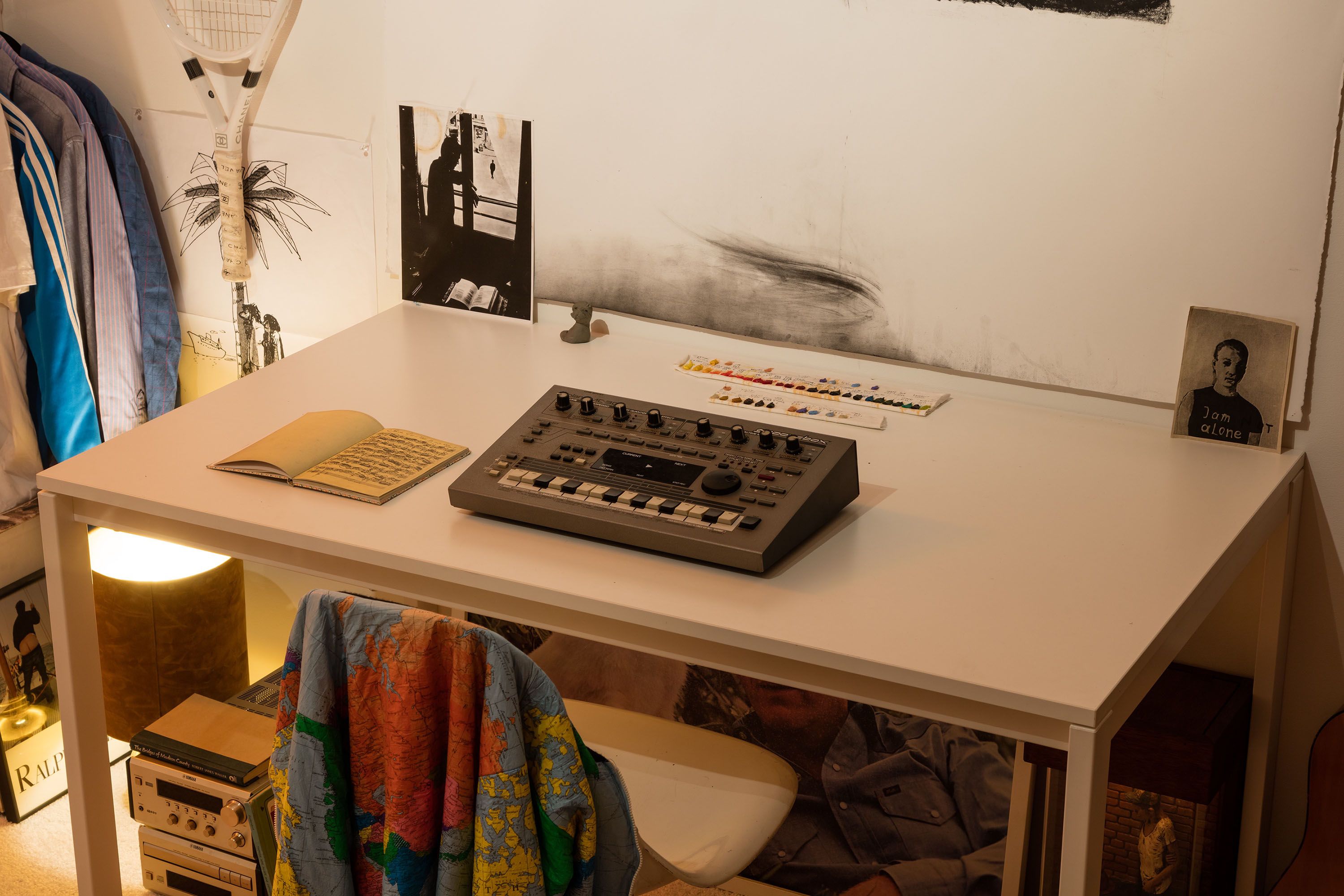
mixed media
dimensions variable
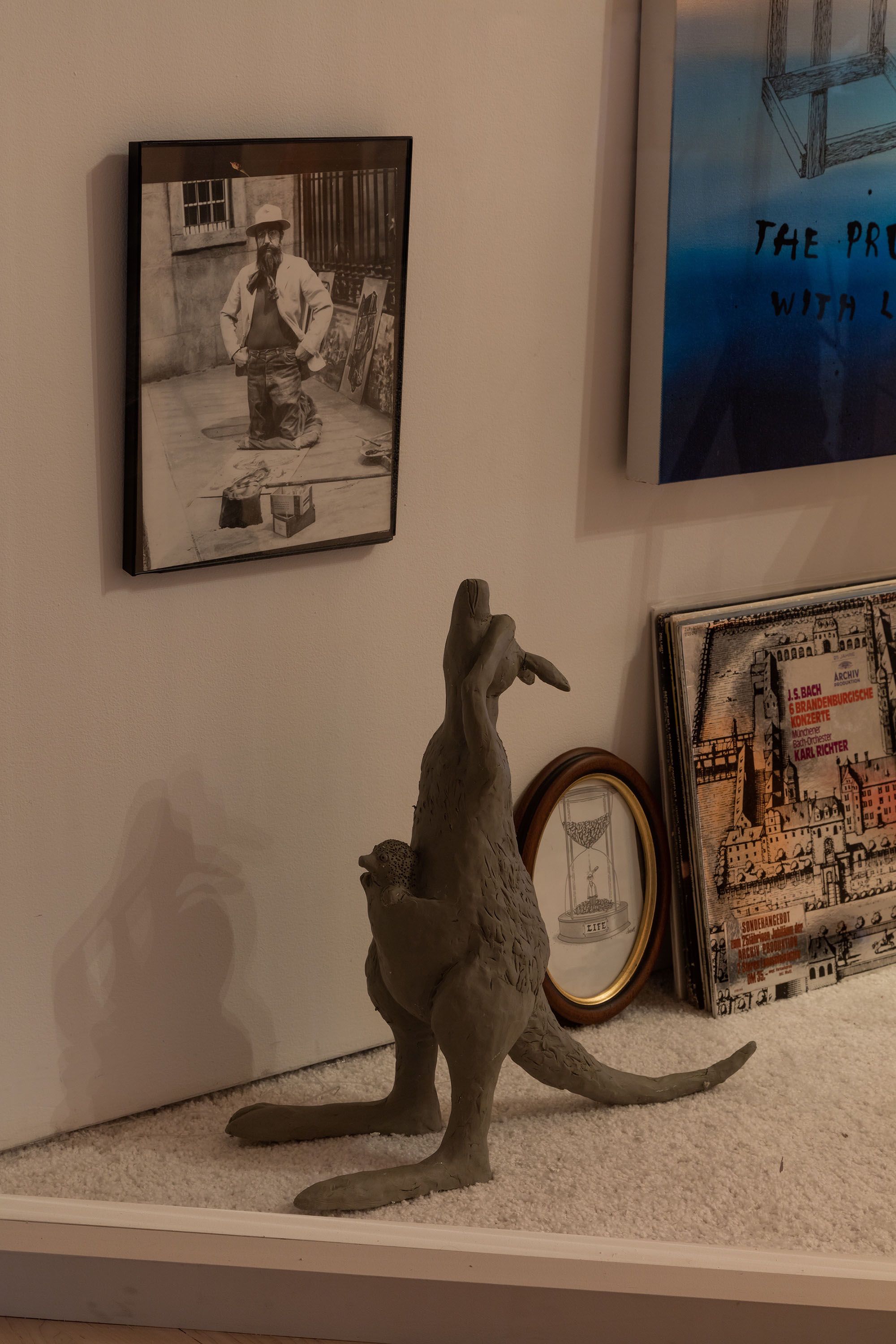
mixed media
dimensions variable
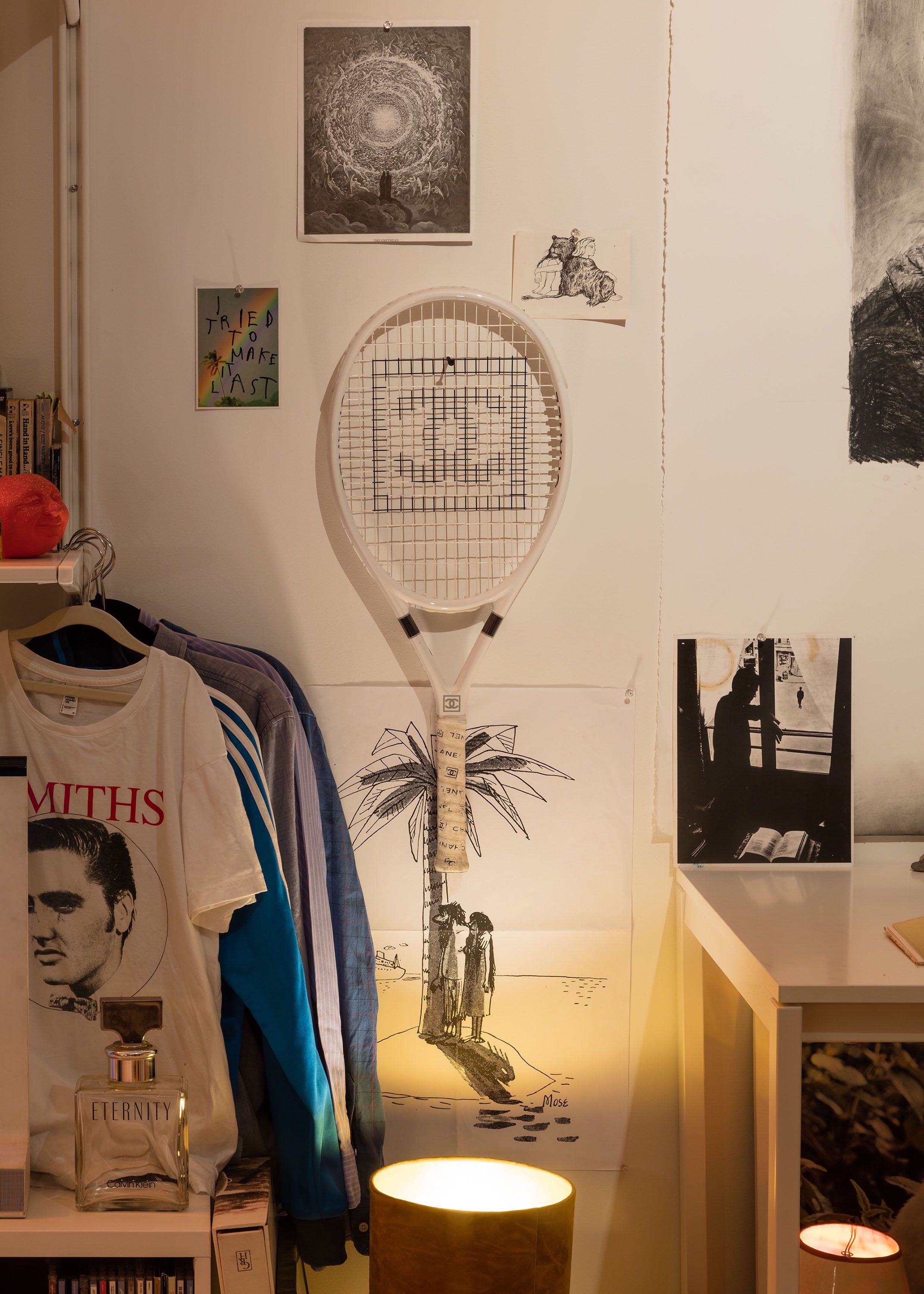
mixed media
dimensions variable
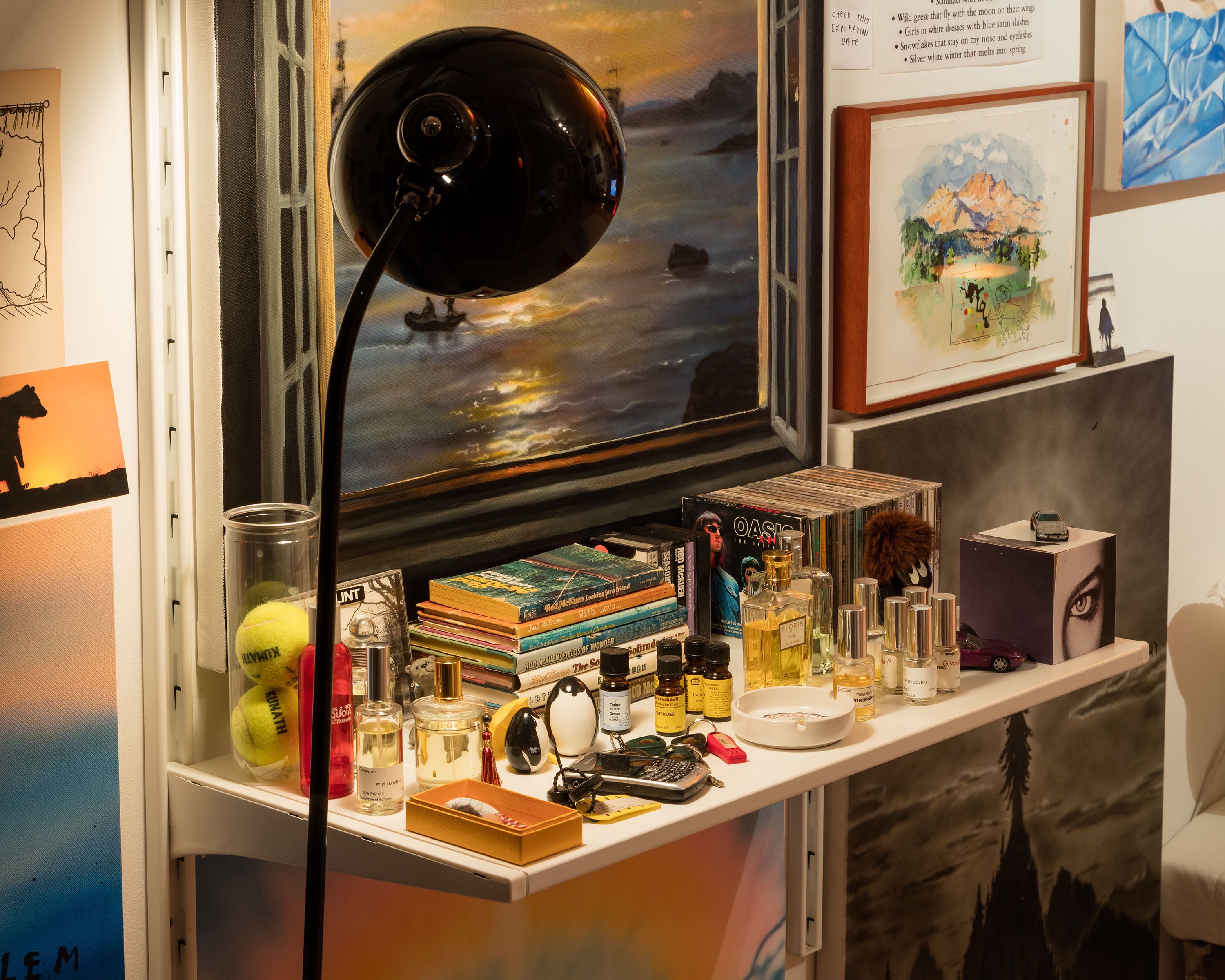
mixed media
dimensions variable
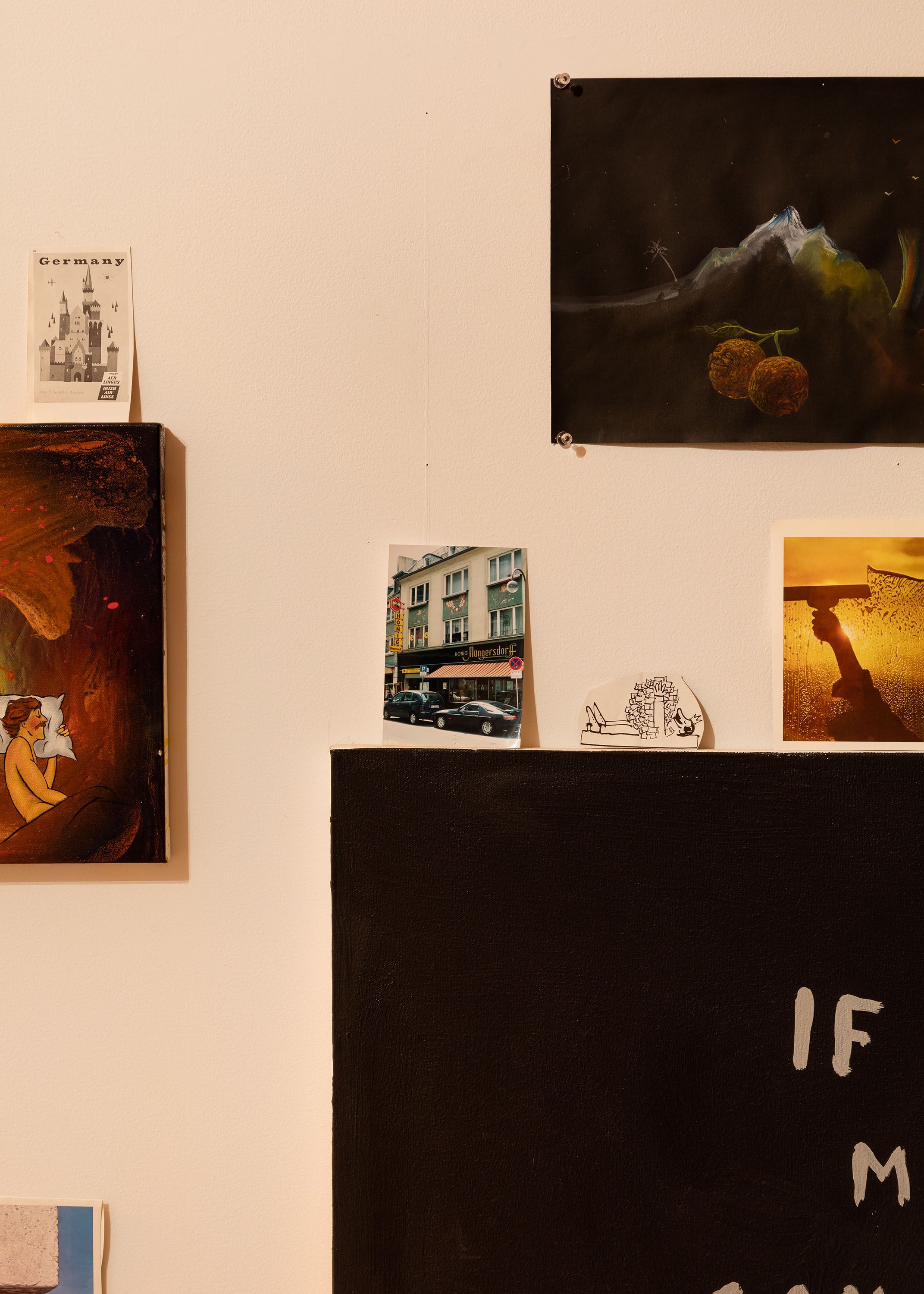
mixed media
dimensions variable
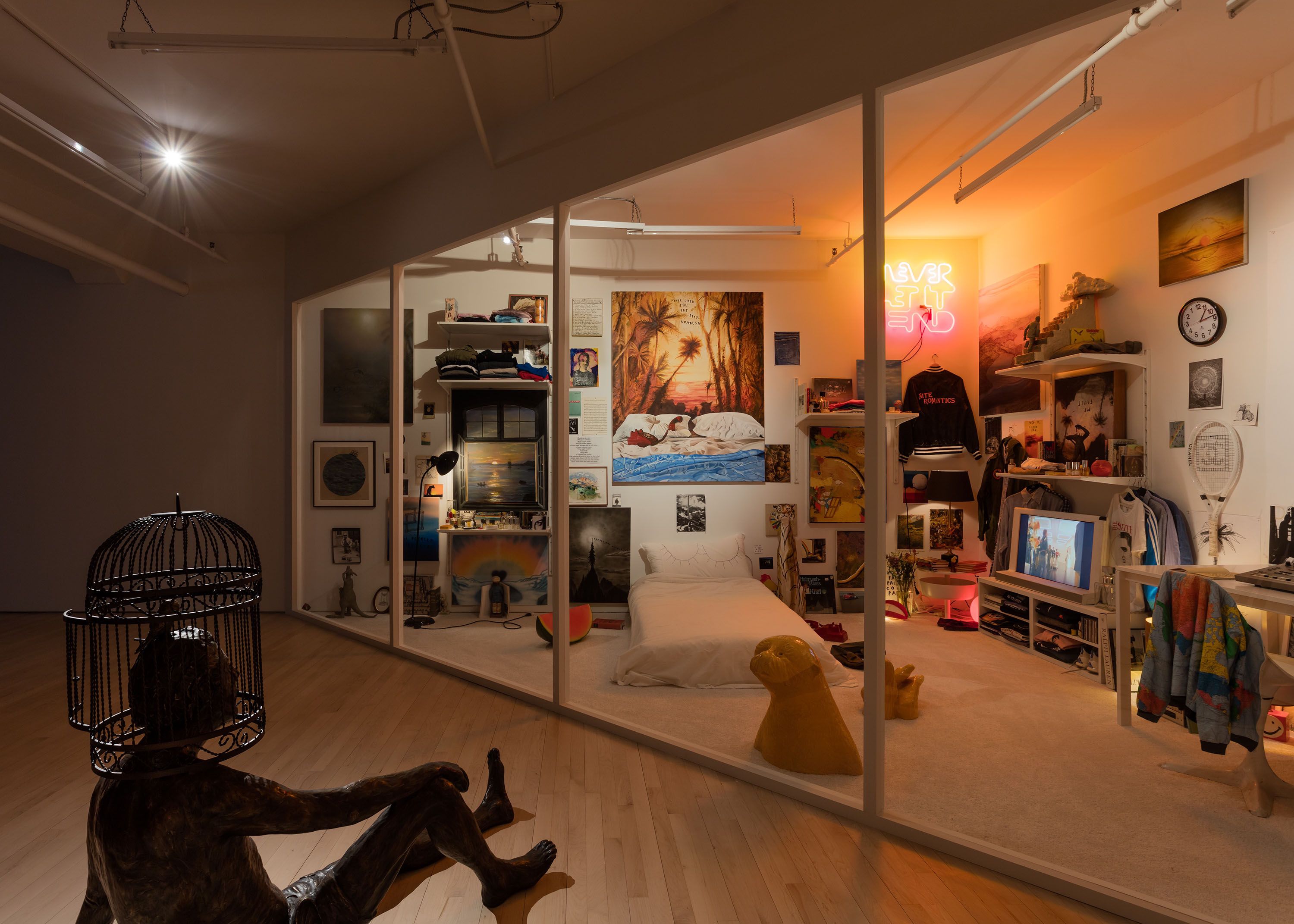
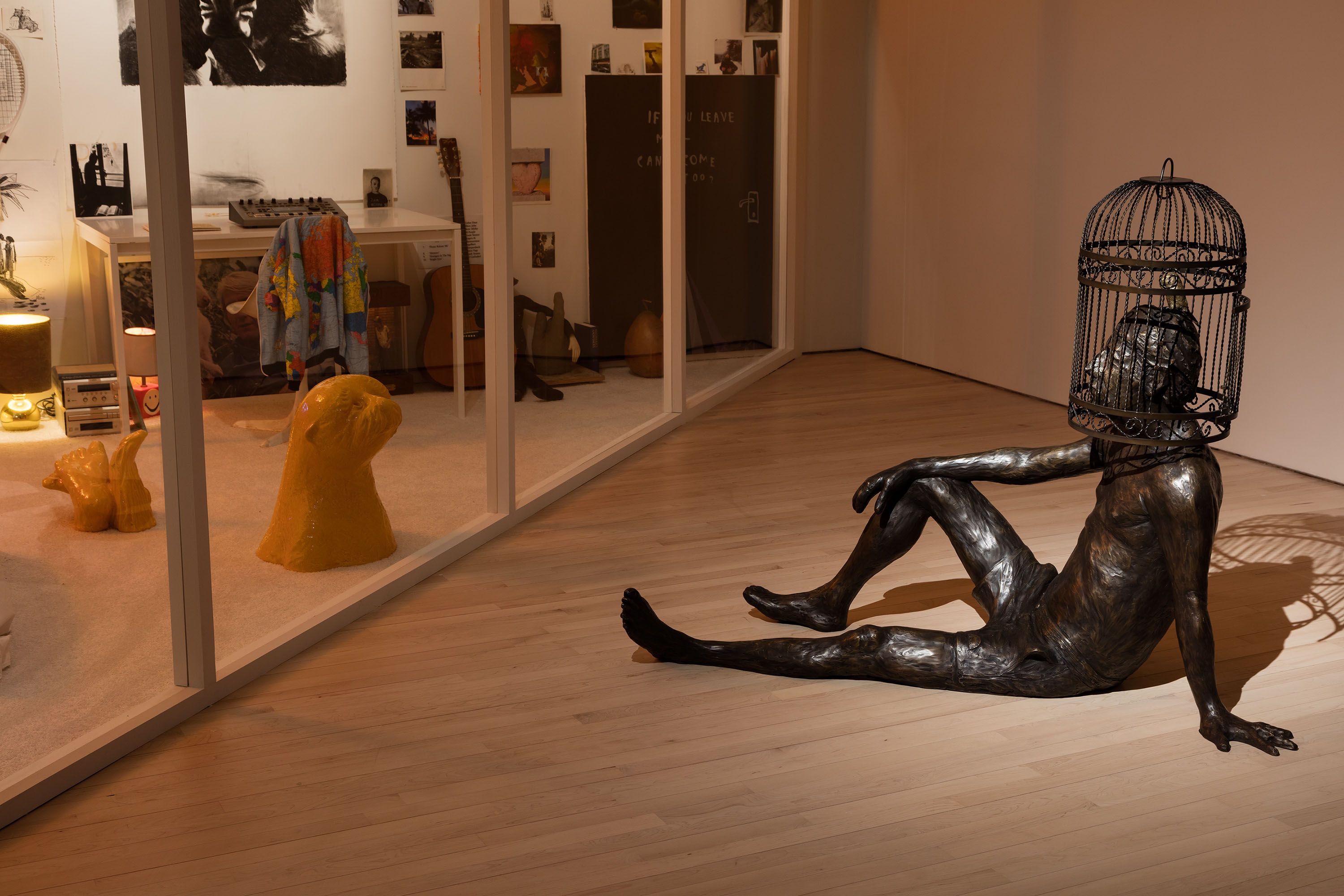
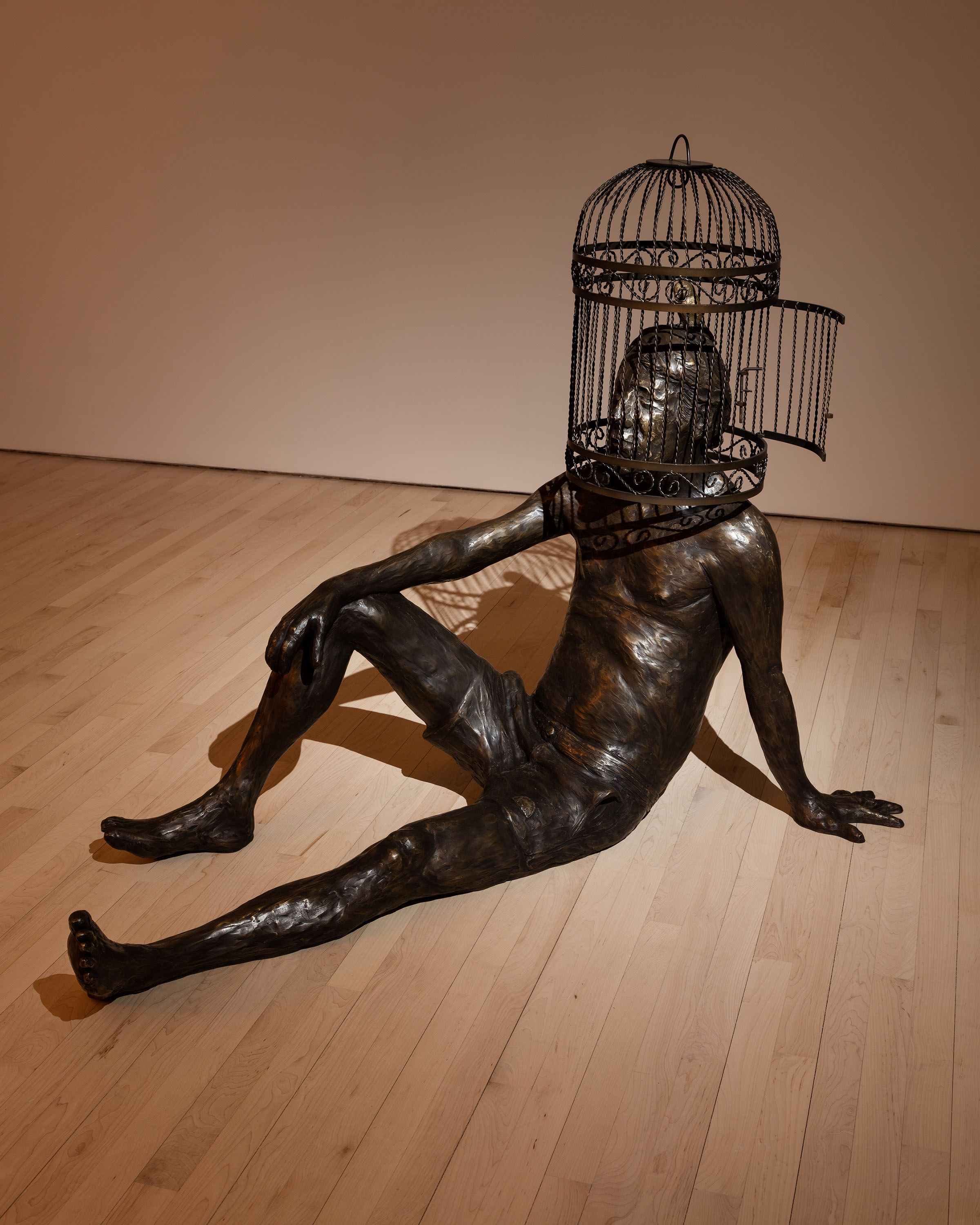
bronze
46 x 57 x 24 in
117 x 145 x 61 cm
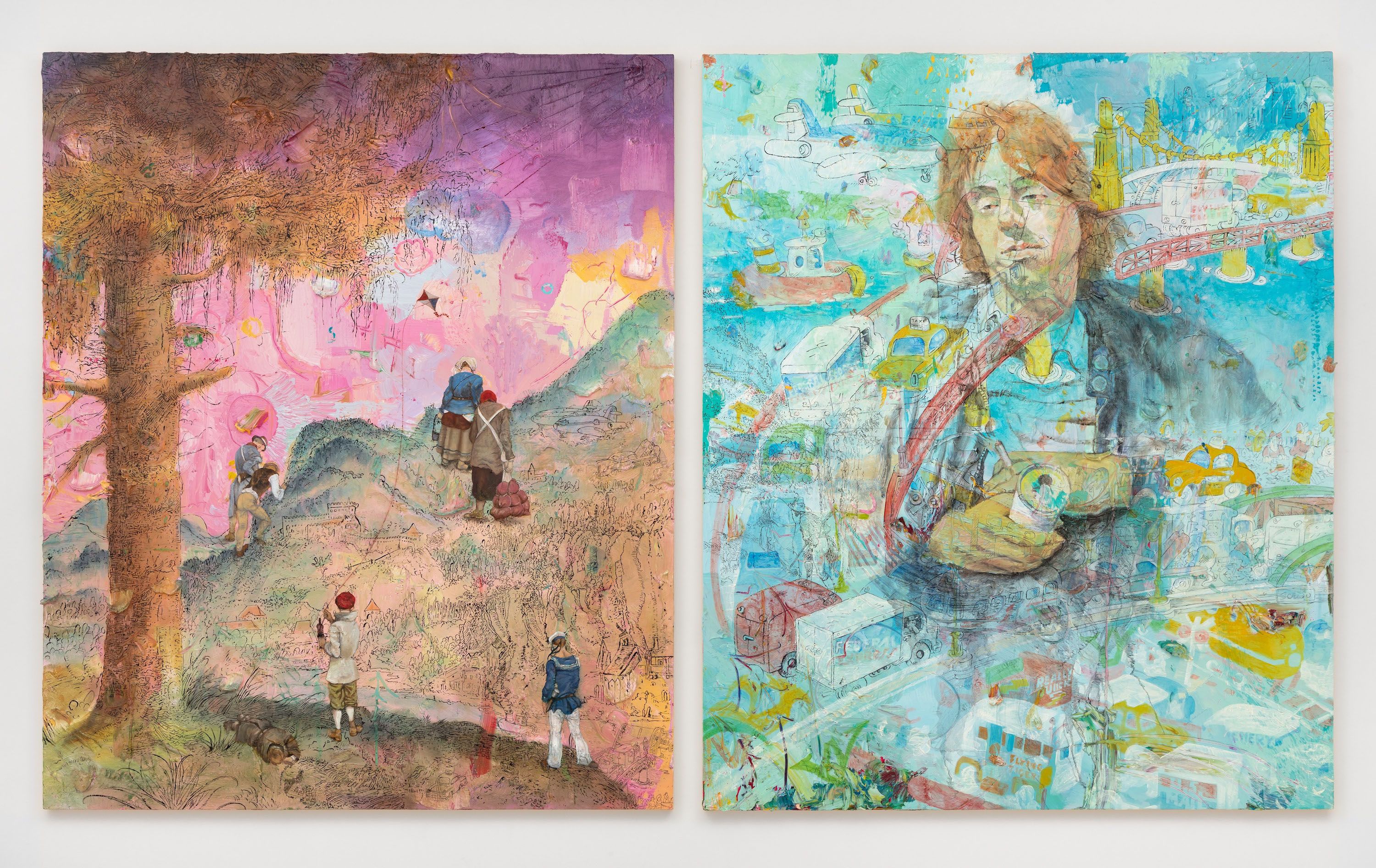
oil on canvas
72 x 60 in each
183 x 152.5 cm each